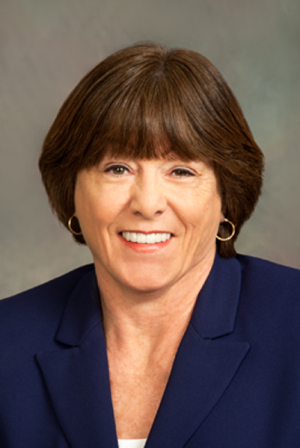by
Nancy Ryerson, Staff Writer | July 22, 2013

ANA president Karen Daley
Karen Daley is president of the American Nurses Association, the country's largest nursing organization. She spoke with DOTmed News about her thoughts on the Affordable Care Act and the unique role nurses will play in changing health care delivery.
DMN: In what ways do you anticipate the field of nursing to change under health care reform?
KD: I don't see it resulting in a change in nursing. I foresee the ACA creating opportunities where nurses are going to be more utilized in the areas where they'll most benefit the patients. So that means an increased emphasis on services where nurses have been educated and licensed to perform — where we really do what nursing is about, primary care, care coordination, chronic disease management, patient education. Those are unique competencies that nurses bring to our practice. I would say we're using those competencies in a much more effective and efficient way.



Ad Statistics
Times Displayed: 79124
Times Visited: 2797 Ampronix, a Top Master Distributor for Sony Medical, provides Sales, Service & Exchanges for Sony Surgical Displays, Printers, & More. Rely on Us for Expert Support Tailored to Your Needs. Email info@ampronix.com or Call 949-273-8000 for Premier Pricing.
DMN: We recently ran a story about the question of whether nurse practitioners should have more independence in their practices. What's your take on that?
KD: Nurse practitioners, by virtue of their training and education, are qualified primary care providers. The evidence is pretty clear that they provide one approach to what's going to be a fairly significant flux of uninsured under the Affordable Care Act. We're going to need all hands on deck when these health exchanges really start changing. In fact, we know, based on pretty consistent findings within the research, that the outcomes relevant to patients are comparable to physicians, and patient satisfaction is even higher. So they are qualified. And we have some challenges to make sure that we utilize them as well. It's not just about making sure we get the regulatory issues addressed, but it's also about the payer systems. Currently, many of them don't credential nurse practitioners as part of their provider panels for primary care. We need to help make changes in that.
DMN: What other challenges or barriers do you feel health care is facing in this transition?
KD: I think there's a lot of chaos in the system right now, because we're really shifting how we look at care from what's really been a very illness-focused and disease-focused kind of model. We're going to need to innovate in terms of how we deliver the care. One of the mechanisms for doing that is devising care delivery systems that are team-based. Within nursing we have a couple of things that we know are very effective in improving care and reducing costs: the nurse-led clinics that are often in underserved areas, and transitional care models, which focus on high-risk patients. So we have models that work — what we need to do is pay attention to them and scale them up. It's not just about the technology, it's about the people and how you utilize them.



john Silver
Karen Daly article/interview
July 23, 2013 04:31
Perhaps Ms. Daly can explain how a federal legislation like the PPACA can impact nursing care when nursing practice is a state regulated practice?
Here in Florida, NP's can't prescribe a percocet, the only state left where that is true.
It seems to me that the PPCA will impact nursing practice only in those states that allow advanced practice to its fullest. By that logic, only 8 states will fully benefit and another 41 states will benefit slightly.
to rate and post a comment